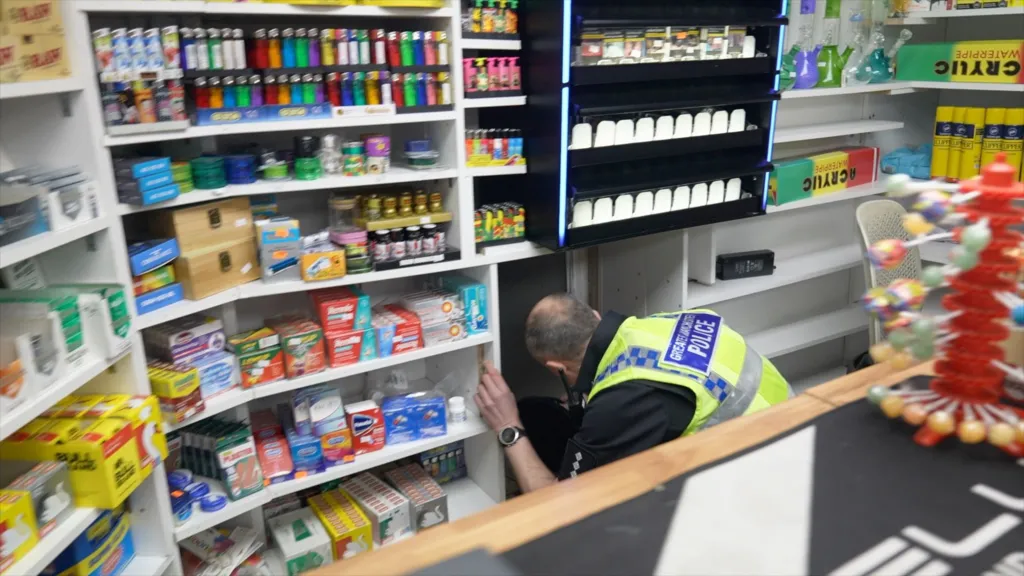Arkansas Becomes 12th U.S. State to Enact Vape Product Registration Law: Implications for E-cigarette and Fruit Flavored Vape Markets
What Act 590 Means for Vape Businesses in Arkansas
Under Act 590, Arkansas will create an official directory of approved E-cigarette products that are legally allowed for sale in the state. Any product not listed in this registry will be deemed illegal for commercial sale starting November 1, 2025, with enforcement measures including fines, confiscation, and potential prosecution.
To be eligible for inclusion in the directory, manufacturers must submit each vapor product or product line to the Arkansas Tobacco Control Board, along with associated fees. Crucially, manufacturers are legally obligated to certify that each product complies with federal and state requirements—or risk penalties for perjury.
The core requirements for products seeking listing include:
- Market Entry Before August 8, 2016
The product must have been commercially available in the U.S. prior to the FDA’s Deeming Rule cutoff date. This condition will effectively eliminate most illegal disposable E-cigarettes that have surged in popularity in recent years. - PMTA Submission by September 8, 2020
The product must have been part of a Premarket Tobacco Product Application (PMTA) submitted to the FDA before this federally mandated deadline. - One of Three FDA Status Conditions Must Be Met:
- The product has received FDA marketing authorization;
- The product is currently under FDA review;
- The product has been denied but is under legal challenge or suspended ruling by the FDA or a federal court.
Failure to register before the September 1, 2025 deadline will bar the product from the directory and render it illegal for sale in Arkansas.
Arkansas’ Unique Enforcement Measures: Cracking Down on Individuals
What sets Arkansas apart from many other states is Act 590’s inclusion of a personal possession clause. This makes Arkansas only the second state after Louisiana to explicitly ban the possession and personal importation of non-compliant vape products.
This provision extends enforcement not only to retailers, wholesalers, and manufacturers, but also to individual users who might purchase products online or bring them in from out of state. The Arkansas Tobacco Control Board is empowered to inspect premises, seize products, and initiate prosecutions where violations occur.
Growing State-Level Momentum for Vape Product Registration in the U.S.
As of April 2025, 12 U.S. states have enacted vape product registration laws. Among them, five states are actively enforcing these laws, while five more, including Arkansas, are preparing for enforcement in the coming months. Two additional states have legislation passed but delayed pending litigation outcomes.
Active Vape Registration States:
- Alabama
- Florida
- Kentucky
- Louisiana
- Oklahoma
Upcoming in 2025:
- North Carolina (effective May 1)
- Virginia (effective July 1)
- Wisconsin (effective July 1)
- Arkansas (effective November 1)
- Mississippi (effective December 1)
Pending Litigation:
- Utah
- Iowa
States in Legislative Process:
Over 20 states are actively considering vape registration bills, including:
- Georgia
- South Carolina
- Tennessee
- Texas
These laws are modeled closely after existing frameworks in states like Louisiana, often using FDA’s PMTA pathway and marketing order status as benchmarks for compliance.
Implications for the Vape Industry: From Fruit Flavored Vape to Disposable Bans
Arkansas’ law, like others before it, is expected to disrupt the sale of disposable and fruit flavored vape products—especially those manufactured outside the FDA’s regulatory pathway. While many adult users prefer fruit flavored vape devices for their taste and convenience, these same products have drawn criticism from public health advocates and lawmakers for their appeal to youth.
As a result, many vapor companies will need to pivot toward PMTA-compliant products, such as:
- Closed pod systems from major brands
- Refillable devices with stricter nicotine concentration limits
- Products with plain packaging and adult-oriented flavors
Manufacturers are also facing mounting pressure to submit extensive documentation, scientific studies, and lab tests to remain compliant—not just with federal regulations but increasingly with state-specific directories like Arkansas’.
Industry Adaptation: What Can Vape Exporters and Sellers Do?
For international sellers, especially those exporting from China, the Arkansas law is another reminder of the complex regulatory maze that defines the U.S. vape market in 2025.
Key Actions for Vape Exporters:
- Audit Product Portfolios
Ensure each item has FDA compliance documentation and track PMTA status. - Invest in Regulatory Support
Partner with legal or compliance teams that understand U.S. state and federal laws. - Focus on Approved Markets
Shift efforts toward markets where your products are PMTA-listed or under review. - Track State-Level Developments
Regulations vary widely between states. A product legal in Florida may be banned in Arkansas. - Adapt Packaging and Labeling
Follow each state’s labeling requirements, nicotine warnings, and tax stamps.
Looking Ahead: The Future of Vapor Regulation in the U.S.
With over 20 states contemplating vape registration laws, and growing bipartisan consensus on youth vaping prevention, nationwide standardization may soon become a reality. While some industry advocates push for federal uniformity, states are racing ahead to protect public health through state-based registries and enforcement tools.
For the industry, this trend represents both a compliance challenge and an opportunity. Companies that invest early in PMTA pathways, adapt to local laws, and prioritize adult-oriented vape products will have a competitive edge as non-compliant players exit the market.
Conclusion: Arkansas Joins Regulatory Vanguard as Vape Laws Intensify Nationwide
As Arkansas enforces Act 590, the state signals its intent to join the growing national movement to tighten oversight on vape, vapor, and E-cigarette products—especially fruit flavored vapes and disposables lacking FDA review.
Manufacturers, exporters, and retailers must respond swiftly to these changes to remain in the market. From product reformulation and rebranding to regulatory compliance and market diversification, the path forward will demand agility, transparency, and a proactive approach to legislation.
The Arkansas law may just be the beginning—but for those ready to adapt, the U.S. market still holds immense potential.
Discover more from Ameca-mall
Subscribe to get the latest posts sent to your email.

